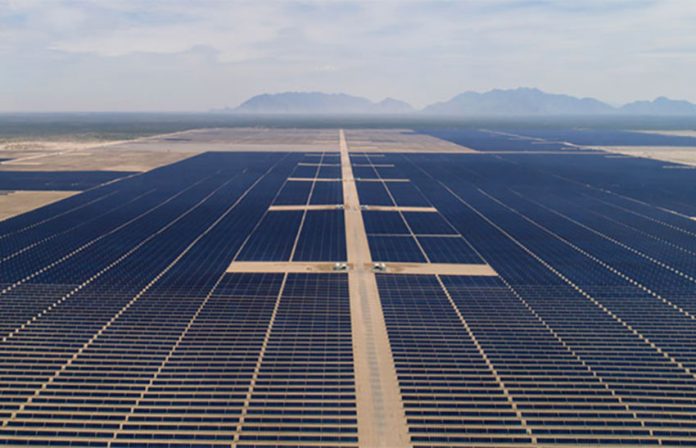The federal government’s antagonism toward renewable energy – which is mainly generated in Mexico by privately-owned projects – appears to be waning.
Along with the Sonora government, it is in the early stages of planning the construction of the world’s eighth largest solar farm, which could be located near Puerto Peñasco.
The US $1.68-billion, 1,000-megawatt project would be a joint venture between the state-owned Federal Electricity Commission (CFE) and the Sonora government. The former would take a 54% share, the latter 46%.
President López Obrador, who has been critical of private renewable companies that operate in Mexico, gave his blessing to the project this week.
If built, the plant will have a capacity one-third greater than that of the 754-megawatt solar farm operated by the Italian company Enel in Coahuila, which is currently Mexico’s largest and occupies 2,400 hectares. It will significantly increase CFE’s solar capacity as the state-owned utility only has very minimal solar assets.
Sonora governor-elect Alfonso Durazo said Tuesday that there is a 2,000-hectare property in the municipality of Puerto Peñasco where the new facility could be located. He met with López Obrador and others from CFE and the Finance Ministry this week to discuss the proposal.
The president’s support for the project comes as something of a surprise as he has championed the ongoing use of fossil fuels and denigrated the value of renewables. In addition, the government has adopted a hostile attitude toward renewable companies already operating or seeking to operate in Mexico, a move that has triggered extensive legal action against it.
Sunny Sonora appears on the surface to be a good location to build a new solar facility – some 20% of Mexico’s 7,000-megawatt installed capacity is located there – but there is already ample electricity supply in the state, making it an unwise choice for additional investment, according to two energy experts who spoke with the newspaper El País.
“There is so much generation capacity in the northwest that if you build a [new solar] park, … the return on the investment will take a very long time, with little income,” said Víctor Ramírez.
“Sonora is not the place that needs more investment. It’s needed more in Baja California, Yucatán or the Bajío, where there is constantly growing demand [for electricity] and insufficient supply,” said Casiopea Ramírez, spokesperson for the Mexican Solar Energy Association.
For his part, Durazo said that energy could be supplied from the solar farm to Baja California, which borders Sonora in the north but is mostly separated from it by the Gulf of California.
Ramírez rejected any suggestion that the announcement of a new solar farm represented an environmental awakening for the federal government.
“It’s an idea that seeks to change the government’s narrative but it seems to me to be more of a political issue [than an environmental one],” he said.
It is unclear when construction of the solar farm might begin and when it could be expected to begin operations.
With reports from El País
